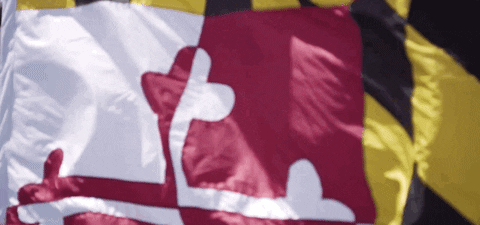The Early Line: Maryland Tells Kalshi, Others To Stop Offering Sports Betting
Sports event trading via prediction markets remains under fire at state level, as Maryland names Robinhood and Crypto.com. Gambling news roundup: Bad news for sweepstakes in Louisiana, Delaware.
TCL offers a roundup of recent US gambling news with analysis called The Early Line every Monday.
Make it five states that don’t want sports betting via prediction markets.
The Maryland Lottery and Gaming Control Commission announced it sent cease-and-desist letters to Kalshi, Robinhood and Crypto.com on Monday. All three are offering “sports event trading,” which is functionally sports betting, in most of the United States (or in Kalshi’s case, all 50 states).
Nevada, New Jersey, Ohio and Illinois have all taken similar actions; a handful of other states have said they are looking into the legality of sports event trading in their jurisdictions.
You can see the cease-and-desist letters here.
More from a release from the MLGCC:
Maryland Lottery and Gaming informed the three companies that the sports event prediction markets they offer via their online platforms are indistinguishable from sports wagering because they are based on the outcomes of sporting events. The existence of these markets circumvents Maryland law (State Government Article §9–1E–01, et seq.), which defines sports wagering and permits it to be offered only by licensed operators. The law additionally requires customer age and identity verification to confirm that sports wagering participants are at least 21, as well as geolocation to confirm that participants are physically located in Maryland when they place a wager. Commodity traders do not operate under these requirements.
“We view this as a legal matter and a consumer protection matter, and there is also a fiscal interest for the State,” said Maryland Lottery and Gaming Director John Martin. “Each of Maryland’s legal sports wagering operators completed a rigorous licensing process and is subject to extensive regulations that include responsible gaming requirements. The commodity traders aren’t bound by those same guardrails. They’re conducting sports wagering without a license, and in doing so, they’re avoiding the collection of sports wagering taxes that legal operators pay to the State.”
You can bet on the outcome of tonight’s men’s college basketball championship game between Houston and Florida at all three platforms.
Ifrah Law has been at the center of advancing iGaming in the U.S., shaping groundbreaking legislation, leading precedent-setting cases, and guiding clients that span the iGaming ecosystem through every phase of their business journey. Learn more at IfrahLaw.com.
Kalshi CEO: 'Not Very Concerned' About Cease-And-Desists As Nevada Decision Looms (The Event Horizon) | “Kalshi CEO Tarek Mansour said ‘we're not necessarily very concerned’ about a series of states saying that the prediction markets platform is offering illegal sports betting, in a recent Tech Crunch interview. Mansour’s comments come ahead of potentially a pivotal day in Kalshi’s legal wrangling around the country. … ‘If the CFTC tells us to stop, we will absolutely stop,’ Mansour said. ‘And if they don’t, then we won’t.’”
This came out before the Maryland action, for what it’s worth.
Reading the line: Is Mansour right to be not worried? I think he should be at least “slightly” worried; one bad court outcome could lead to action from an even larger cohort of states than the handful we have already seen. For now, what happens next appears to be up to the courts in a pair of lawsuits Kalshi filed in Nevada and New Jersey. A federal court in Nevada has a potentially pivotal decision incoming on whether Kalshi can continue to serve that state, after a hearing set to take place tomorrow.
For all the legal arguments being bandied about, Kalshi’s future more or less turns on whether federal law preempts state law in this instance. Kalshi is clearly offering sports betting from a user standpoint. But does that matter legally? Stay tuned.
New bill seeks to ban prop bets, impose other sports betting regulations (Boston.com) | “The legislation would ban so-called prop betting, prohibit sports betting advertising during sports broadcasts, require companies to double their contributions to a state fund that supports addiction treatment services, increase the corporate revenue tax on sports betting companies, limit the amount of money a person can bet each day without being subject to an ‘affordability check,’ and require operators to provide more gambling data to the state.”
Reading the line: Before lawmakers in Massachusetts act, I implore them to take a look at what’s going on in Massachusetts on an unregulated or quasi-regulated basis (including prediction markets). More funds for addiction treatment is definitely a good idea, however.
Gambling news roundup
Cease-and-desist issued to VGW Luckyland, Inc. for illegal online slots (State of Delaware): “An investigation by the Delaware Division of Gaming Enforcement (DGE) into VGW Luckyland, Inc. – a subsidiary of the Australian-based VGW Holdings Ltd. – revealed that VGW Luckyland, Inc. was operating illegal online gaming. Delaware officials concluded that VGW misrepresented its services as a promotional sweepstakes while enabling players to purchase coins for casino-style games, leading to potential cash winnings. These types of real-money games offered to Delaware residents by an unlicensed entity violate the Delaware Constitution, the Delaware Penal Code and the Delaware Gaming Competitiveness Act of 2012. With the support of the Delaware State Lottery, DGE issued a cease-and-desist order to VGW. Effective April 2, 2025, Delaware residents can no longer participate in VGW Luckyland’s unlicensed online gaming platforms.”
Louisiana jumps on board anti-sweepstakes train (SBC Americas): Louisiana is the latest state in which lawmakers are mulling a ban on online sweepstakes casinos. A bill filed on April 4, Sen. Adam Bass’ SB 181, would ban the operation and promotion of online sweeps in the state. The bill looks to prohibit “gambling by computer,” defined as any online game, contest or promotion that utilizes a dual-currency system of payment and offers players the chance to win any prize or award or cash or cash equivalents. … The Louisiana bill is similar to legislation that has been filed in some other states in that it not only targets operators but also suppliers, affiliates and other parties.”
From the sweeps trade group: “The Social and Promotional Games Association (SPGA) vehemently opposes Louisiana Senate Bill 181 (SB181), introduced by Senator Adam Bass, which recklessly misclassifies legitimate sweepstakes as illegal gambling. This misguided legislation endangers lawful businesses and sends a chilling message to investors, jeopardizing Louisiana’s burgeoning tech sector.”
Montana bill aims to crack down on broad range of online gambling (Next.io): “Senate Bill 555 (SB 555), as amended for the 2025 legislative session, proposes substantial revisions to the state’s gambling laws, with a particular focus on the regulation of internet gambling and associated technologies. The bill, introduced by Sen. Vince Ricci, amends multiple sections of the Montana Code Annotated (MCA), expanding definitions, clarifying prohibitions, and updating criminal penalties for violations. One of the bill’s most consequential changes is the revised definition of ‘internet gambling.’ Under SB 555, this term is broadened to explicitly include online casinos and the use of cryptocurrency as a medium of exchange.”
Kentucky Derby continues to set wagering records as gambling on horse racing declines (Louisville Courier Journal): “Attendance is down industrywide (30% since 2000), as is the number of races conducted annually. More than 30,850 races occurred in 2024, compared with 52,000 in 1967. … Despite this industry-wide crisis, the Kentucky Derby continues to rake in record-breaking wagering and viewership numbers. All-source betting reached $320.5 million last year, besting the previous high of $288.7 million in 2023. Derby 150’s audience peaked at 20.1 million — the largest on NBC (which began airing the race in 2001).”
There are no easy answers for the horse-racing industry. But improving the experience in betting online is one obvious avenue to explore.
Not sure why there aren’t prediction markets for horse racing and daily fantasy horse racing already. (If that last one already exists, I apologize for not being aware.)
Rep. Luttrell looks for legislative leverage on Oklahoma sports betting issue (Pawhuska Journal Capital): “One way or another, District 37 State Rep. Ken Luttrell, R-Ponca City, is looking to achieve approval for sports betting in Oklahoma. … House Bill 1101 could be an attractive choice for lawmakers because it can be approved without the involvement of Gov. Kevin Stitt, Luttrell said in a telephone interview on Friday, April 4. If the House and Senate agree on the adoption of HB 1101, the governor can only set the referendum date, not stop it from happening, Luttrell said. ‘Needless to say, the governor is not very happy with me right now,’ Luttrell said with a laugh. ‘He said my two bills are the height of corruption.’”
PENN Entertainment Launches Stand-alone iCasino App, theScore Casino, in Ontario (press release): “PENN Entertainment (“PENN” or the “Company”) (Nasdaq: PENN) announced today that it has launched theScore Casino™, a new stand-alone iCasino app in Ontario. The dedicated online casino experience leverages the popular theScore brand, which has been a mainstay in the Ontario market for decades. Now available on Android, iOS, and desktop, customers can login using their existing theScore Bet credentials, allowing for a seamless experience across online gaming platforms. TheScore Casino operates on the same cutting-edge proprietary technology platform as PENN’s online Hollywood Casino, which launched as a standalone product in the U.S. in December.”
Closing Line Consulting
I have been a trusted analyst and executive in the gambling space for more than a decade. I don’t just write a newsletter; I work with a number of companies in gaming. Learn more about CLC here.
Sponsor The Closing Line?
Want to reach an audience of thousands of people in the gambling industry? Email dustin@closinglineconsulting.com for more information, and see below.










